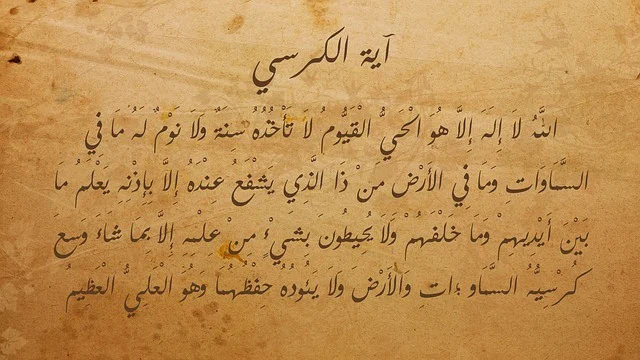Imagine a system so robust it guides over a billion people through life’s complexities, from daily prayers to cutting-edge technical dilemmas, all while staying rooted in divine wisdom. That’s Usul al-Fiqh, the principles of Islamic jurisprudence—a methodological masterpiece that enables scholars to derive legal rulings (ahkam) from Islamic sources. Whether you’re a Muslim seeking clarity on a modern issue or a curious mind exploring Islamic law, understanding Usul al-Fiqh is like unlocking the blueprint of Sharia. Let’s dive into its core principles.
1. The Bedrock: Primary Sources of Islamic Law 📖
At the heart of Usul al-Fiqh are the foundational sources that anchor every legal ruling. These are the non-negotiables, accepted by nearly all Islamic legal schools, and they form the scaffolding of Sharia.
- Quran 📜: The ultimate authority, believed to be the literal word of God. Its verses provide direct guidance on worship, ethics, and law—like the command to pray five times daily or prohibitions on unjust dealings.
- Sunnah 🗣️: The Prophet Muhammad’s (peace be upon him) sayings, actions, and approvals, preserved in Hadith collections. The Sunnah clarifies the Quran, offering practical examples, like how to perform ablution.
- Ijma (Consensus) 🤝: When qualified scholars of an era unanimously agree on a ruling, it becomes binding. Think of it as the collective wisdom of the ummah, ensuring unity on key issues.
- Qiyas (Analogical Reasoning) ⚖️: This method extends existing rulings to new cases with shared legal causes. For example, since the Quran bans wine for its intoxicating effects, scholars use qiyas to prohibit modern drugs with similar impacts.
2. The Toolkit: Secondary Sources and Methods 🛠️
What happens when primary sources don’t explicitly address an issue, like cryptocurrency or AI ethics? Usul al-Fiqh offers secondary tools, though their use varies across legal schools (madhabs). These methods showcase the flexibility of Islamic law.
- Istihsan (Juristic Preference) 💡: When a strict analogy causes hardship, scholars may choose a ruling that prioritizes fairness or ease. For instance, allowing a traveler to combine prayers for convenience.
- Maslahah Mursalah (Public Interest) 🌍: Rulings can promote societal benefit or prevent harm, as long as they align with Sharia’s goals. Think of environmental regulations to protect communities.
- Urf (Custom) 🏡: Local customs can shape rulings if they don’t contradict Islamic principles. For example, regional marriage traditions may influence dowry practices.
- Sadd al-Dhara’i (Blocking the Means) 🚫: Actions leading to unlawful outcomes are prohibited. For instance, restricting certain financial deals that could enable usury.
- Istishab (Presumption of Continuity) 🔄: An existing ruling or state persists unless evidence proves otherwise—like assuming a contract remains valid until proven void.
3. The Art of Interpretation: Unlocking Sacred Texts 🔍
Interpreting the Quran and Sunnah is no small feat. Usul al-Fiqh provides rules to ensure scholars extract rulings accurately and consistently.
- Linguistic Mastery 🖋️: Since the Quran and Hadith are in Arabic, scholars must understand grammar, syntax, and historical context to grasp intended meanings.
- Textual Clarity:
- Qat’i (Definitive) ✅: Clear, unambiguous texts, like the five daily prayers, leave no room for reinterpretation.
- Zanni (Speculative) ❓: Ambiguous texts allow scholarly discretion, fostering diverse opinions on complex issues.
- Abrogation (Naskh) ⏩: Some earlier rulings are superseded by later ones, based on context. For example, gradual restrictions on alcohol culminated in its prohibition.
- Reconciling Conflicts ⚖️: Apparent contradictions in texts are harmonized by analyzing specificity, context, or complementary meanings, ensuring a cohesive legal framework.
4. The Engine: Conditions for Ijtihad 🚀
Ijtihad, the process of independent reasoning to address new issues, is the lifeblood of Usul al-Fiqh. But not just anyone can perform ijtihad. Scholars—think Muftis and Faqihs—must meet strict criteria:
- Mastery of Arabic, Quran, Sunnah, and fiqh texts.
- Knowledge of legal methodologies.
- Understanding of Sharia’s objectives (more on that below).
- Moral integrity and a sincere intent to seek truth.
5. The North Star: Objectives of Sharia (Maqasid al-Sharia) 🌟
Every ruling in Usul al-Fiqh aims to fulfill the higher goals of Sharia, known as Maqasid al-Sharia. These objectives ensure law serves humanity’s well-being:
- Preservation of Core Values: Protecting religion, life, intellect, lineage, and property.
- Promoting Justice and Compassion: Rulings prioritize fairness, mercy, and public welfare.
- Balancing Benefit and Harm: Maximizing maslaha (benefit) and minimizing mafsada (harm).
6. The Guardrails: Legal Maxims (Qawa’id Fiqhiyyah) 🛡️
Usul al-Fiqh is guided by universal legal maxims that streamline rulings. These include:
- “Hardship begets facility” 😊: Exemptions or leniencies apply in difficult circumstances.
- “Certainty is not overruled by doubt” 🔒: Existing states persist unless proven otherwise.
- “Actions are judged by intentions” ❤️: The validity of deeds hinges on sincere intent.
Conclusion: The Big Picture 🕌🌍
Usul al-Fiqh is more than a set of rules—it’s a cinematic framework that brings divine guidance to life. By rooting rulings in primary sources (Quran, Sunnah, ijma, qiyas), leveraging secondary tools, and following interpretive and ethical guidelines, it empowers scholars to navigate timeless truths and modern challenges. Whether it’s a Mufti issuing a fatwa or a Faqih teaching fiqh, Usul al-Fiqh ensures Islamic law remains a beacon of justice, compassion, and relevance.



